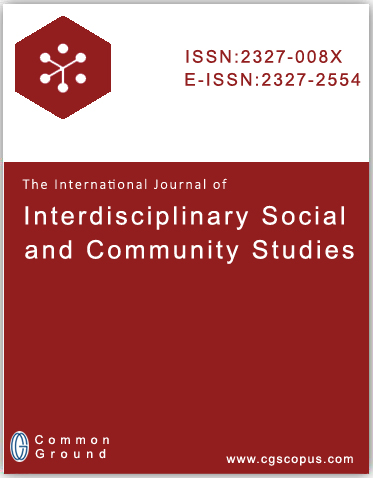ECOFEMINISM: A JURISPRUDENTIAL PERSPECTIVE
DOI:
https://doi.org/10.18848/chr0qk59Abstract
Ecofeminism is anideological movement that integrates feminist and ecological perspectives, critically examining the links between environmental degradation and gender inequality. It argues that the exploitation of nature and the subjugation of women stem from a patriarchal worldview that treats both as resources to be exploited. This perspective challenges binary oppositions, such as male/female and culture/nature, advocating for an understanding of the interdependence of all life forms.
Ecofeminism debates on the traditional legal structures that often overlook the complexities of gender, class, race, and ecological factors, resulting in inadequate protections for marginalized populations. It highlights how property laws and resource management frequently prioritize corporate interests over community and ecological well-being, further entrenching cycles of exploitation.A transformative jurisprudence is advocated, where legal principles reflect sustainability, community values, and equity. This includes incorporating gender analyses in environmental impact assessments and promoting participatory governance, ensuring that marginalized voices are heard in decision-making processes.Furthermore, ecofeminism calls for the legal recognition of ecological rights, positing that ecosystems have intrinsic rights independent of human utility. This challenges the commodification of nature and encourages a shift toward prioritizing ecological integrity.
Ecofeminism advocates for a transformative legal framework that intertwines environmental justice and gender equality. It critiques traditional legal systems, which often prioritize corporate interests and human domination over nature, leading to the marginalization of women and vulnerable communities. Ecofeminism argues that both environmental degradation and gender oppression are rooted in patriarchal structures that devalue both women and the natural world. It calls for legal reforms that recognize the interconnectedness of social and ecological health, emphasizing the need for inclusive decision-making processes that empower marginalized voices. By advocating for the legal recognition of ecological rights, ecofeminism seeks to establish intrinsic rights for ecosystems, challenging the commodification of nature and promoting a paradigm shift toward ecological integrity. This approach encourages laws that incorporate gender-based analyses in environmental assessments, ensuring that the differential impacts of policies on various genders are acknowledged and addressed. Ultimately, ecofeminism aims to create a more equitable legal system that reflects the interdependence of human rights and environmental sustainability, fostering a holistic understanding of justice that prioritizes both community well-being and ecological health. Ecofeminism offers a pathway to more just and sustainable gender-neutral governance practices.










